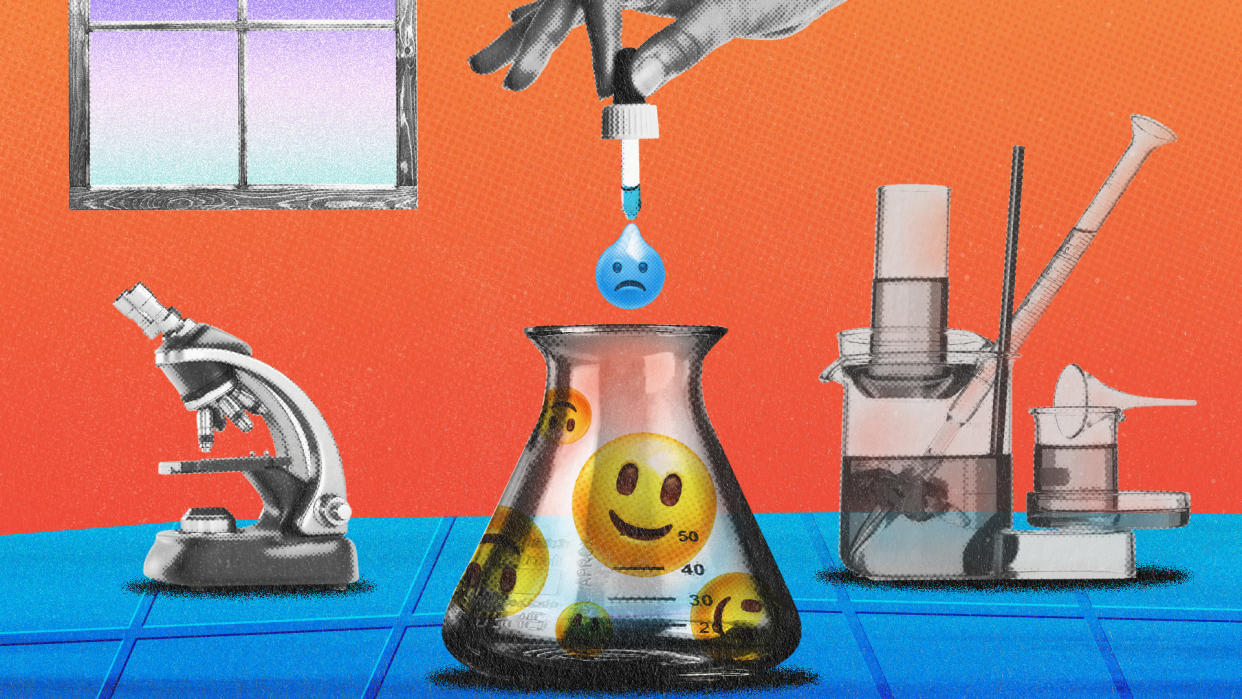Why depression cleaning works, according to experts

Mental health experts and those who struggle with depression often say that cleaning your space is a good first step for climbing out of a depressive episode — a directive you can see reflected in everything from how-to guides to depression-cleaning vlogs and TikToks. It’s shockingly simple advice for a complicated condition, but can putting away that pile of clothes and scrubbing the dishes really give your mental health a boost?
Research shows a correlation between home clutter and increased stress hormones. Some studies link a messy home to poor sleep quality, decreased self-control and strain on our relationships. Meanwhile, a clean space can promote a sense of calm, improved cognitive ability and better focus. The act of cleaning can help people regain a sense of order and control in times of stress.
TL;DR: Clean space, clear mind.
Living in a disorderly space can become a vicious cycle: The mess makes you feel worse, and feeling worse can make it harder to clean. But which comes first, the apathy or the pile of dirty clothes? Natalie Christine Dattilo, a clinical psychologist and an instructor at Harvard Medical School, calls it a classic “chicken-or-egg” dilemma. “We know that we generally feel better in clean spaces and worse in unclean spaces,” she says. “But, we don’t know which causes which, beyond a robust association.”
Datillo figures living in a messy space probably isn’t good for your mental health, but “if you’re struggling with a bout of depression — something that will zap your energy, zap your motivation, and increase a sense of apathy — you’re also less inclined to take care of your space and your things. It’s bidirectional.”
Cleaning up your act
When we’re depressed, basic self-care is one of the first things to go. Experts suggest this is because of the connection between low self-esteem and low energy; it’s hard to find the motivation when you’re just barely hanging on. Datillo says that cleaning may help to provide a way out, taking advantage of what she calls “behavioral biofeedback” to reinforce positive behavior.
Cleaning, as an act of self-care, is a tangible task that can build self-esteem. You can witness the effects in your environment. The practice of wiping off the counters and hanging up your jackets is more straightforward than changing your mindset. “Self-care is important because it is a behavior, and our behavior is a demonstration we can observe,” Datillo says.
From a behaviorist standpoint, cleaning also offers an immediate reward — a feeling of accomplishment that strengthens your sense of self-efficacy. Datillo reasons that it reinforces positive behavior, and that imbuing a task with a positive association will increase the likelihood that you’ll do it again. Behavioral scientists say this is a key part of building sustainable, healthy habits.
As a collection of tangible tasks, cleaning also offers a chance to see your progress. Datillo says it helps to focus on just one chore that you’ve been putting off, like doing the dishes or putting away clothes: “That might be it for the day, but it will increase the likelihood that you do something again the next day.” Each accomplishment reinforces the reward and breaks down the task. A huge cleaning project that you’ve been avoiding becomes a series of significantly smaller, more manageable chores.
Tidy is trending
Marquis Norton, a Virginia-based therapist and TikTok content creator who specializes in youth depression, echoes that cleaning up can help you feel like you did something good for yourself: “You set a small goal. It takes some self-discipline, it’s not that easy, but it does help you feel like you’re accomplished and effective.” He says that it’s important for building self-trust. “You did what you set out to do.” And compared to other mental health interventions, cleaning up has a lower barrier to entry — you don’t even have to leave your house.
There’s a reason why so-called “depression cleans” and clean-with-me videos have gained so much traction on social media. They’re both practical and aspirational.
But cleaning doesn’t necessarily have a one-size-fits-all approach. Datillo is careful to qualify her advice: “??There are people for whom mess is controlled chaos; these are people who typically thrive in chaos or under pressure.” Some people just aren’t bothered by a messy space, finding tranquility (even inspiration!) in the clutter around them.
Norton also emphasizes that “different interventions are useful for different people.” In addition to traditional treatments like cognitive behavioral therapy and medication, he suggests patients try a variety of lifestyle interventions like exercising, eating well, journaling and socializing. It’s a limitation to call cleaning up a cure-all. “It’s a detriment if someone is depressed, cleans up their room and feels discouraged that it didn’t mitigate their symptoms,” Norton says.
Young adults are facing a growing mental health crisis. Cleaning your room isn’t a substitute for robust, accessible mental health care, but Datillo says that cleaning and getting organized is “a free and accessible behavioral intervention” with proven results. “Why not at least try it?”
View the original article at Chegg Life and signup for the Chegg Life Newsletter
Related...
